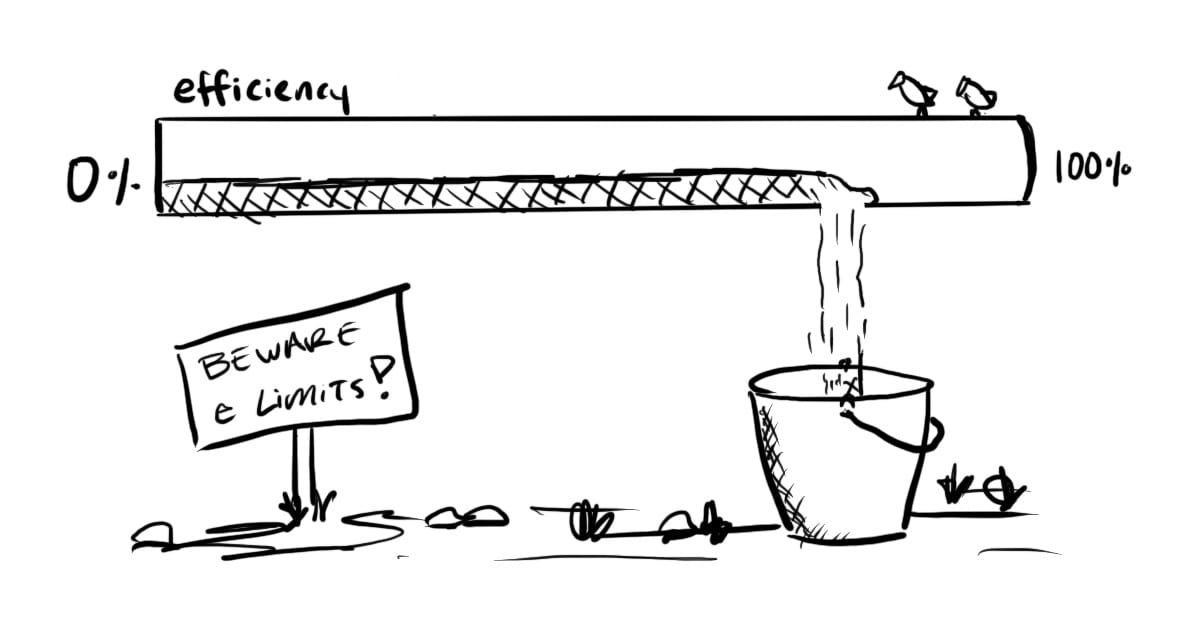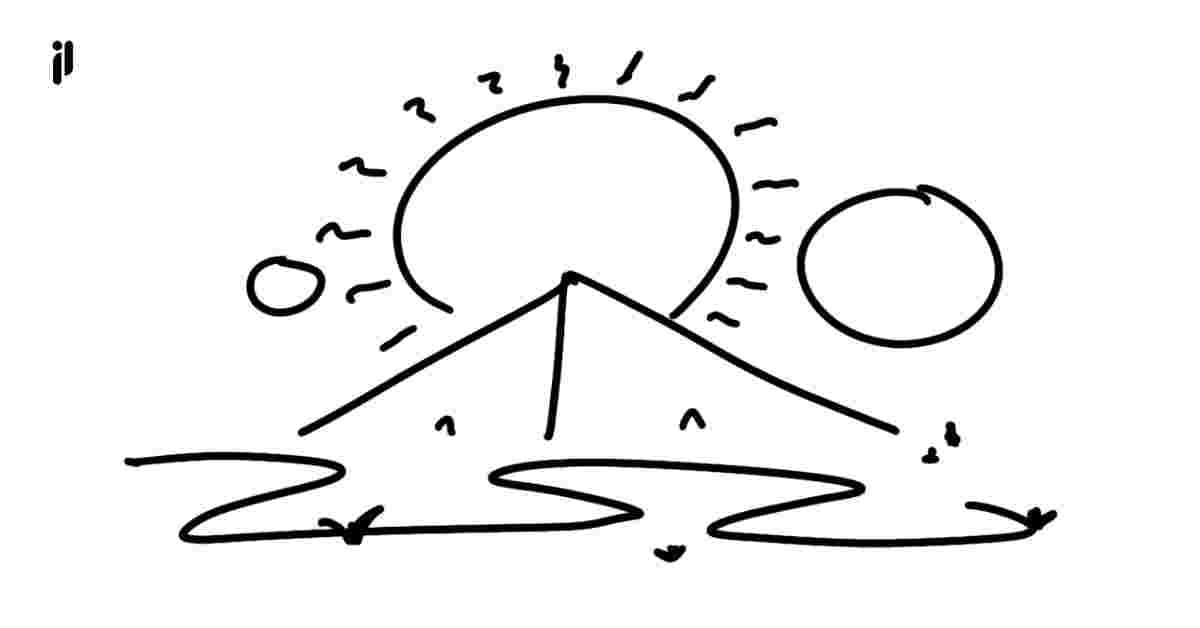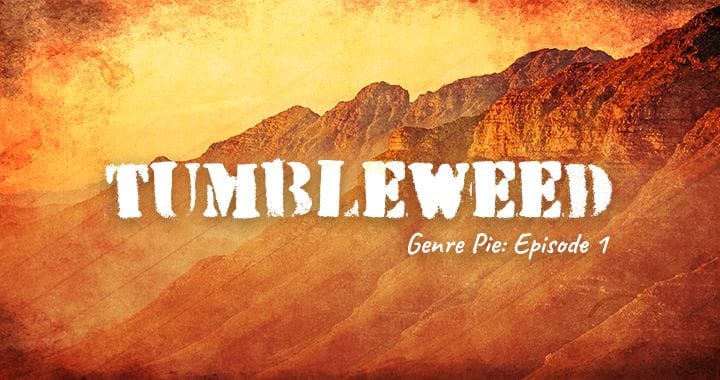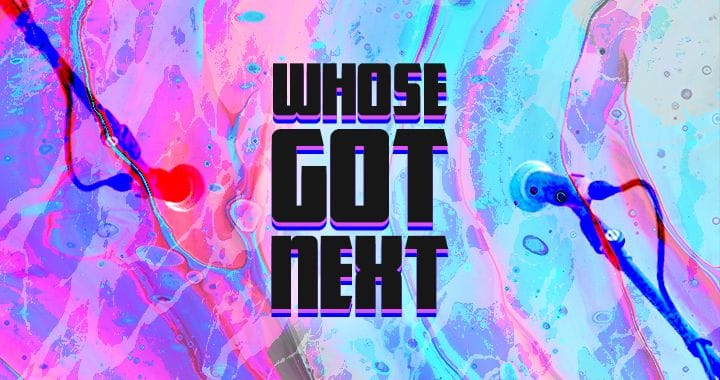What does VR’s future sound like?
How long do you think we have until virtual reality becomes one way – or even the preferred way – to attend concerts? Here's my guess.
How long do you think we have until virtual reality becomes one way – or even the preferred way – to attend concerts?
Recent news hints that VR headline tours may be closer than we think. In this week’s newsletter I’m cooking food for thought about audio’s virtual future, news of a new audio collaboration platform, and more. Dawn your headsets and hit play – Let’s dive in.
🌴 Almost oasis: the sound of VR’s future
You’ve just bought tickets to Coachella 2031. Thanks to your recent carbon rebate, you managed to get the ticket price down to a more reasonable $89 for the three-day pass. This year’s festival attendance will be the largest ever: 28.5 million.
As the weekend approaches, you prepare your apartment to embark. You make sure the fridge is stocked with recyclable bowls for breakfast and lunch, and the pantry with an assortment of snacks for your elevated evenings. You’ve moved the furniture in your living room and bedroom to line the walls, with extra pillows for you and your partner. You set your email’s autoresponder at work and draw the front blinds.
On your TV stand sit two matching VR headsets, paired with personalized wireless headphones. Coachella 2031’s theme is “virtual tomorrow”, with 97% of its audience attending the festival from the comfort of their own homes. The past 3 years of reviews and chatter have confirmed what the critics have been saying for half a decade: The virtual experience is finally better than live.
Wait… how’d we get here?
Banter about VR has been dancing on many-a-peripheral for the better part of the past 10 years. What started out as a niche gaming Kickstarter quickly gained mass-market legitimacy when Oculus was acquired by Facebook for US $2.3 billion in 2014. Suddenly, tech’s race for the virtual moon was on. Efforts by Google, Samsung, and HTC were dragged into the public spotlight as several limiting technological gaps rapidly closed, illuminating the pixelated path for the pack.
However, one area has been seemingly left out of much of the VR conversation. An area that (when done incorrectly) kills immersion and (when executed to perfection) can freeze the air in the room. VR’s audio.
For better or worse, I’ve noticed significantly less chatter about what’s possible in VR with audio than, say, with gaming. But that might all be changing.
Concerts gone virtual
Earlier this week, Forbes posted an article (Link) about a company that’s working on bringing a “virtual universe” of “major concerts and DJ club events from all over the world” to the virtual stage. Sensorium Corporation is shaking the floor when it comes to bringing some of music’s most notable and exclusive locations to a living room near you.
The announcement itself isn’t a new concept. Virtual concerts feel like the natural progression from your favorite band’s “Live at the ____” YouTube playlist or (further back) DVD. What is novel, though, is how they seem focused on developing an ecosystem – virtual online spaces – where users can generate their own content for sharing on socials. A touted benefit of live shows is your ability to vibe with the crowd and have interactions with the people around you. Sensorium’s newest platform, it seems, seeks to emulate those interactions. While the social component’s efficacy remains to be seen (hot take: doubtful) the platform is a foresight into live music’s future migrations to the digital space.
Beyond the mainstage
Ok… let’s get serious for a second. We both know that virtual reality audio experiences can be wayyy cooler than just going to a virtual concert… right?
To me, one of the foundational cases for VR is that things can be better, not just ‘the same as’, real life in an immersive digital world. Don’t aim to replicate. Instead, aim to enhance or invent.
For instance, a research team out of the University of Texas has announced they have created DJ software that can curtail personalized music according to the listener’s mood (Link). Different from common streaming algorithms, the software pays attention to songs’ relevance, adapting the sequence of songs and song selection as it gets to know the user…
… so humor me with a hypothetical here. That research team takes the software, turns it into a third-party plugin that can be integrated into other software’s audio codebase. That plugin is then modified, added to, and refined such that it can export a listener’s profile for use by other applications. Suddenly you have game soundtracks that adapt to your playstyle, audio workstations that can suggest a tone, tempo, and timbre based on your mood, and a personalized life soundtrack to compliment both your brightest and bluest days. Translate this into a virtual space, and suddenly stepping into VR feels like coming home.
To me that’s way cooler than watching any DJ jump behind a digital booth. Not to say we can’t enjoy both… but I defy us all to think a little bigger.
Getting to the oasis
The challenge, it seems, is dealing with the extreme disparity between music’s innovators and the industry’s inability to catch up with previously disruptive tech (read ‘the internet’). Many day to day conversations (and last week’s newsletter) are more concerned with how today’s musicians can traverse the digital desert and scrape out a living. With the focus on our feet as we outrun yesterday’s monsters, there’s little time to look to the future and build the road ahead.
Perhaps a possible approach is building the solutions into tomorrow’s infrastructure. Are you building a virtual live music platform? Cool. Develop a standard schema for sharing and attending music events, open source it, and push for adoption across the wider industry. Suddenly bands and performers are getting paid for live performances in a consistent fashion, and many stampede to host their events through you.
As musicians migrate to the music festival in the virtual desert, we should be mindful to make sure we have what we need when we get there. First to the oasis? Build the well. Let everyone drink from it with no strings attached. You can have your commercial stalls and sell $20 mineral waters to VIP attendees... But maybe the best way to proceed is by setting up hospitality before concessions.
🐋 Audio collaboration dives deeper
You’ve met a fellow producer online and want to work on a new track together. Eager to make the most of a free weekend, you’re ready to toss your modem out the window with constant bounces and uploads of track-outs. Not to mention you and your co-producer can’t work at the same time in fear of problems when merging changes.
The audio collaboration space is due for an upgrade, and a new platform announced this week aims to put a smile on audio professionals’ faces (Link). Soundwhale offers synchronous collaboration and communication tools for all studio users – Producers, artists, podcastsers, and post-production teams can collaborate on audio (and video on paid tiers) using the new software, which can be routed through your native DAW. Learn more on Soundwhale’s website »
😬 Social media: bad for you, bad for us
While common knowledge has hinted at social media’s negative impacts on mental health for some time, new research quantifies just how distorted the apps can become. Fast Company’s recent article (Link) points out some of the larger trends, namely:
- Positive interactions on social media have little effect, while their negative counterparts magnify feelings of sadness
- Cell phone usage impacts your speed and ability in problem solving
- Time spent on social media often comes at the cost of time spent in person (in economics this tradeoff is called opportunity cost)
Amid this news, consider taking a moment to make sure you have control over social media… not the other way around.
🍸 Copyright’s toxic cocktail
Pigeons & Planes recently published an excellent article (Link) that touches on last week’s headline topic – music attribution and clearance. Citing the constant disruption and innovation in how we consume, promote and monetize music (thanks to the internet), P&P raises a cutting question: Will we ever catch up?
Focused more heavily on promotional platforms and channels on social media, the issue points back at the void of attribution and clearance that keeps cutting in like a bad chorus. Add malicious copyright striking and overly-protective platform regulations to the mix and you get a toxic legal cocktail. It makes sense that content curators have become averse to promotion, leaving you with less channels to get new and breaking music from fresh artists. The solution? Many are calling for integrated metadata tracking to ease payment flows (Link).
🎧 Cued Up

I've had Jack Harlow's newest mixtape, Confetti, on repeat this week, namely GHOST, HEAVY HITTER, and ROTTEN.
Harlow and the Private Garden team have been dropping gems for a while now (Sundown, Dark Knight, Wasted Youth), and Confetti is no exception. Listen.





